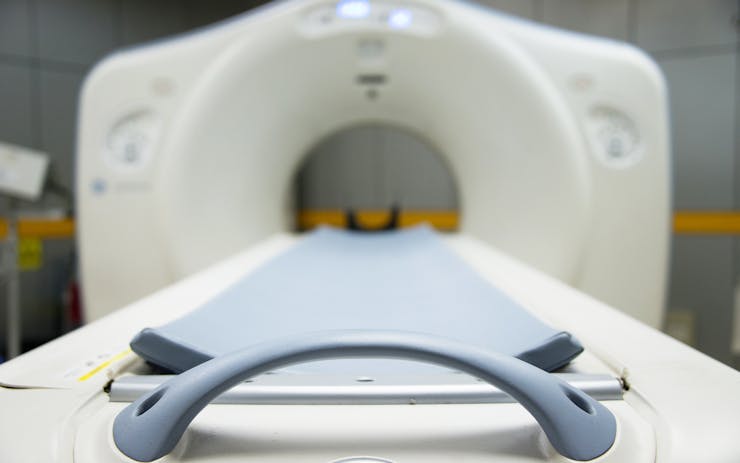UK drugmaker GW Pharmaceuticals announced Tuesday it has achieved positive results in the second phase of a clinical study on Glioma, a cannabinoid-based therapy aimed at treating an aggressive form of brain cancer.
The study looked at 21 patients with recurrent glioblastoma multiform, or GBM, and found that participants who were given the drug—a combination of THC and CBD—lived significantly longer than those who took a placebo.
“These promising results are of particular interest as the pharmacology of the THC:CBD product appears to be distinct from existing oncology medications and may offer a unique and possibly synergistic option for future glioma treatment,” the study’s principal investigator Susan Short, an oncology professor at the Leeds Institute of Cancer and Pathology at St. James University Hospital, said in a statement.
Study participants who received Glioma showed an 83 percent one-year survival rate, GW reported, compared to a 52 percent rate among those who took a placebo. The median survival rate was 550 days among those who took the drug and 369 days among those who did not.
While the company says the treatment was “generally well tolerated” by patients, there were some observed side effects. Most common were vomiting, dizziness, nausea, headache, and constipation.
GBM, one of the most common types of brain tumor, is an aggressive cancer that arises in the brain or spinal cord. It carries a poor prognosis, with only 28.4 percent of patients surviving longer than a year after diagnosis. Only 3.4 percent of patients survive to year five.
CEO Justin Gover said in a statement that the latest results continue to validate the importance of researching cannabis as a treatment for cancer and other diseases.
“These data are a catalyst for the acceleration of GW’s oncology research interests,” he said, “and over the coming months, we expect to consult with external experts and regulatory agencies on a pivotal clinical development program for THC:CBD in GBM and to expand our research interests in other forms of cancer.”
GW Pharma is already known widely for its seizure drug Epidiolex, a cannabis-derived treatment that has shown promising results in reducing symptoms in children with a rare form of epilepsy. Beginning in 2007, the company has conducted research into cannabis as a treatment for various forms of cancer, including brain, lung, breast, pancreatic, melanoma, ovarian, gastric, renal, prostate, and bladder. It has also investigated the possible use of cannabis to treat diseases such as diabetes, schizophrenia, Alzheimer’s and Parkinson’s diseases, and multiple sclerosis.
The company’s research has resulted in a number of registered patents that could become increasingly important as medical cannabis expands both in the United States and globally.





